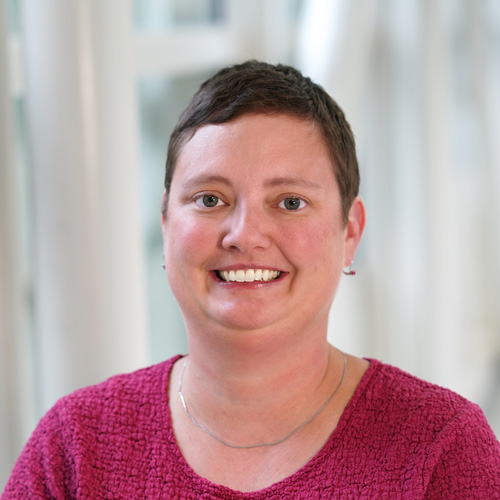Research Interests:
- Stem cells
- Tumor heterogeneity
- Field cancerization
- Cancer prevention
Positions
Roswell Park Comprehensive Cancer Center
- Associate Professor of Oncology
- Department of Dermatology
- Member, Experimental Therapeutics Graduate Program
- Member, Cancer Stress Biology Program
- Member, Genitourinary (GU) and Soft Tissue and Melanoma (STM) Translational Research Groups
- Department of Cell Stress Biology
Background
Education and Training
- PhD - Molecular and Cellular Biology, Baylor College of Medicine, Houston, TX
- Post-doctoral Fellow - Department of Pathology and Laboratory Medicine, University of North Carolina, Chapel Hill, NC
Professional Memberships
- Society of Basic Urologic Research (SBUR)
Research Overview
My research lab focus is to understand the mechanism of cancer stem cells to understand the clonal expansion that can represent field cancerization in early tumorigenesis and expansion of therapy resistant cells recurrent cancer. In attempts to analyze the rare cancer stem cells in bulk tissue, collaborations with Drs. Wei and Paragh take advantage of the high percentage of cancer stem cells in melanoma and then early UV induced clonal mutations in normal sun-exposed skin. Our collaborations led to studies using single cell sequencing of melanoma cells and detection of clonal mutations in sun-exposed “normal” skin. With the success of these projects, the lab focuses on utilizing current genomic and clinical resources to move studies into the clinic.
In a long-term collaboration with Dr. Foster, we have established a track record of testing stem cell and cancer stem cell properties from both mouse and human tissues. We have demonstrated acquiring human surgical and donor specimens for use in stem cell assays from multiple tissues including bladder, melanoma, prostate, sarcoma and ovarian. The tissues are procured from both surgical specimens at Roswell Park and a warm autopsy program, rapid tissue acquisition program (RTAP) in collaboration with ConnectLife, Western New York’s Blood and Organ Donor Program. Additionally, we have determined the impact of time of procurement for utilizing fresh surgical specimens for genomic and cell-based assays. We are excited to use our expertise to determine if clonal mutational burden in normal tissue frequently exposed to carcinogens (i.e. skin, lung, esophagus, colon, bladder) can predict cancer risk. These studies will eventually lead to better preclinical screening to assess the risk of cancer and enable prevention and early therapeutic interventions.
Past and current funding include: NCI, NIDDK, DOD, Roswell Park Alliance Foundation, NYSTEM, and Dr. Louis Sklarow Memorial Fund.
Publications
1. Grant SR, Tang L, Wei L, Foster BA, Paragh G*, Huss WJ*. Mutation Hotspots Found in Bladder Cancer Aid Prediction of Carcinogenic Risk in Normal Urothelium. International Journal of Molecular Science. 2023; 24(9), 7852. doi.org/10.3390/ijms24097852 *Co-Corresponding Authors
2. Grant SR, Rosario SR, Patentreger AD, Shary N, Fitzgerald ME, Singh PK, Foster BA, Huss WJ, Wei L, Paragh G. HotSPOT: A Computational Tool to Design Targeted Sequencing Panels to Assess Early Photocarcinogenesis. Cancers. 2023; 15(5):1612. https://doi.org/10.3390/cancers15051612
3. Ramakrishnan S, Kittles RA, Huss WJ, Wang J, Attwood K, Woloszynska A. Serum Androgen Metabolites Correlate with Clinical Variables in African and European American Men with Localized, Therapy Naive Prostate Cancer. Metabolites. 2023;13(2):284.
4. Shah SD, Gillard BM, Wrobel MM, Karasik E, Moser MT, Mastri M, Long MD, Sule N, Brackett CM*, Huss WJ*, Foster BA*. Syngeneic model of carcinogen-induced tumor mimics basal/squamous, stromal-rich, and neuroendocrine molecular and immunological features of muscle-invasive bladder cancer. Frontiers in Oncology. 2023;13. doi: 10.3389/fonc.2023.1120329. *Co-Corresponding Authors
5. Mastri M, Ramakrishnan S, Shah S, Karasik E, Gillard BM, Moser MM, Farmer BK, Azabdaftari G, Chatta GS, Woloszynska A, Eng KH*, Foster BA*, Huss WJ*. Patient derived models of bladder cancer enrich the signal of the tumor cell transcriptome facilitating the analysis of the tumor cell compartment. American Journal of Clinical and Experimental Urology, 2021;9(6):416-434, *Co-Corresponding Authors
6. Wei L*, Christensen SR*, Fitzgerald ME, Graham J, Hutson ND, Zhang C, Huang Z, Hu Q, Zhan F, Xie J, Zhang J, Liu S, Remenyik E, Gellen E, Colegio OR, Bax M, Xu J, Lin H, Huss WJ*, Foster BA*, Paragh G*: Ultradeep sequencing differentiates patterns of skin clonal mutations associated with sun-exposure status and skin cancer burden. Science Advances 2021, DOI: 10.1126/sciadv.abd7703 * Co-Corresponding Authors
